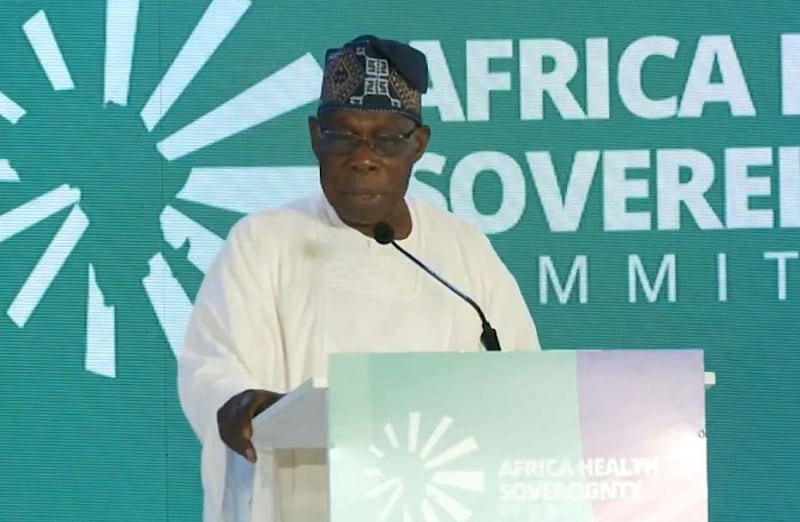The Africa Health Sovereignty Summit, held in Accra, Ghana, served as a critical platform for African leaders and health experts to deliberate on the continent’s position within the global health landscape. Central to the discussions was the urgent need for Africa to establish robust and self-reliant health systems, capable of addressing the continent’s unique health challenges and reducing dependency on external aid. Former Nigerian President Olusegun Obasanjo’s address underscored this imperative, emphasizing the strategic allocation of resources towards strengthening health infrastructure and integrating traditional medicine into national health policies. This summit, themed “African Health Sovereignty in a Reimagined Global Health Governance Architecture,” aimed to chart a new course for African health systems – one driven by local realities, leadership, and long-term sustainable development goals.
Obasanjo’s call for dedicating at least 25% of national health insurance funds towards bolstering health infrastructure and systems was a pivotal recommendation. He underscored the continent’s existing capacity, noting that almost every African nation has some form of health insurance, however rudimentary. By channeling a significant portion of these funds towards infrastructure development, Obasanjo argued, African nations can begin to build more resilient health systems, capable of withstanding external shocks and providing more comprehensive care to their citizens. This strategic investment would not only improve access to quality healthcare but also contribute to long-term economic growth and development.
Beyond financial allocation, Obasanjo also championed the integration of traditional medicine into national health policies. He highlighted the historical reliance of global pharmaceutical companies on traditional remedies sourced from local communities, emphasizing the inherent value and efficacy of these practices. Formalizing the role of traditional medicine, according to Obasanjo, would not only harness the untapped potential of local knowledge and resources but also contribute to a more culturally relevant and accessible healthcare system. This approach would empower local communities, preserve indigenous knowledge, and potentially reduce reliance on expensive imported pharmaceuticals.
The Accra summit aimed to establish a roadmap for achieving health sovereignty in Africa. This concept, central to the summit’s theme, encompasses the ability of African nations to define and control their health agendas, independent of external influence. It represents a shift from donor-driven health interventions towards a more self-determined approach, where African nations take ownership of their health challenges and develop solutions tailored to their specific contexts. This involves not only securing adequate funding but also fostering local expertise, strengthening health governance structures, and prioritizing research and development relevant to African health needs.
Several key outcomes were anticipated from the summit, including the establishment of a Presidential High-Level Panel tasked with developing a new global health governance framework. This panel, composed of influential African leaders and health experts, will be instrumental in advocating for a more equitable and representative global health architecture that recognizes Africa’s unique needs and perspectives. The summit also aimed to launch the SUSTAIN Initiative, a program designed to promote country-led health systems strengthened through strategic investments. This initiative reflects the summit’s focus on sustainable, long-term solutions driven by local ownership and leadership.
Finally, the Accra Compact, a unified continental vision for health sovereignty and equitable health partnerships, was expected to be endorsed at the summit. This compact, developed through extensive consultations with African stakeholders, articulates a collective commitment to strengthening health systems, promoting equitable access to healthcare, and ensuring that African voices are heard in global health decision-making. It represents a powerful statement of intent, signaling Africa’s determination to take control of its health destiny and contribute meaningfully to shaping a more just and equitable global health order. The Accra Summit, therefore, marked a crucial turning point in Africa’s pursuit of health sovereignty, laying the groundwork for a more resilient, self-reliant, and equitable health future for the continent.


